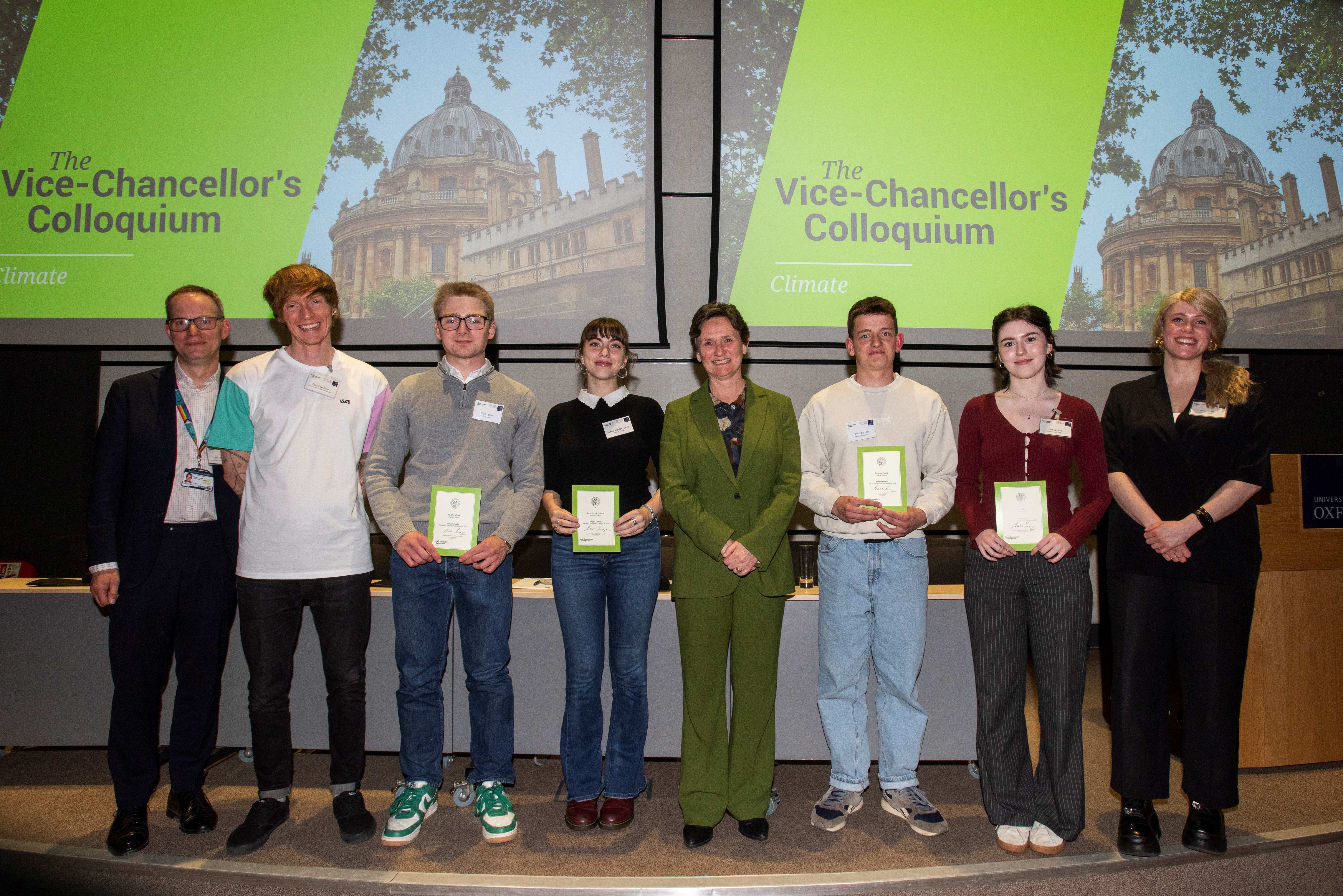
A special event was held at the Maths Institute on Earth Day (22 April) to celebrate the end of the eight-week programme, attended by the Vice-Chancellor and many of the students who had taken part.
Created by the Vice-Chancellor, Professor Irene Tracey, the Colloquium aims to bridge a potential gap between different academic disciplines, upskilling Oxford’s undergraduate students outside of their core subjects. It emphasises the importance of cross-curricular skills such as numeracy and data analysis, critical thinking, and effective communication to tackle the big global challenges of the 21st century.
I have been delighted by the level of interest and engagement of students in the inaugural Vice-Chancellor’s Colloquium. Over the past eight weeks a fantastic programme of keynote lectures and discussion groups has brought together students and academics from across all academic disciplines to think broadly and creatively about climate change.
By working collaboratively, our students have developed some brilliantly creative and innovative projects that show the value of fostering strong cross-curricular skills to tackle global issues.
I am deeply grateful to the Department for Continuing Education who hosted the program and to all the graduate student facilitators and academic staff members who worked so hard to make this happen. Congratulations to one and all!
Professor Irene Tracey, Vice-Chancellor of Oxford University
Featuring keynote lectures, the programme brought together senior Oxford academics from different disciplines to respond to big questions about the causes, impacts and solutions to the climate crisis, as well as college-based skills sessions led by postgraduate students, and interdisciplinary student projects that tackled a local problem related to climate.
Three teams, made of up to five undergraduate students from different disciplines and colleges, were shortlisted for their proposals, with the winning project – a proposal to create communal mini allotments at colleges using Oxford’s green spaces – announced at Monday’s event. The ‘Mini Allotment Initiative’ aims to connect students at Oxford with nature and provide a platform for community and wellbeing.
Reflecting on the Vice-Chancellor’s Colloquium, Philip Siller, a third-year Chemistry student from Wadham College who was part of the winning team, said: “What was particularly enriching was the range of eye-opening lectures by experts from vastly different fields, and simultaneously the stimulating discussions between fellow participants who challenged our understanding of their respective fields and how they contributed to combatting climate change.”
Anna Serafeimidou, a first year Medicine student also at Wadham and part of the ‘Mini Allotment Initiative’, said: “I found the Colloquium a really pleasant change from the usual rigidity of my medical course. Even at school I didn’t feel as though I fitted completely into one of the STEM/humanities divisions, being equally keen on English Literature as well as Biology, so the fact that the Colloquium actively bridged these traditionally ‘different’ disciplines was really appealing to me (we’re not so different after all!).”
Other shortlisted student projects included a proposal to review college travel grants and incentivise students to take low emission travel routes, and ‘Oxford Student’s Green Plate’ – a cookbook of plant- recipes based on low carbon emission ingredients, to engage fellow students on the topic of climate and encourage eating more sustainably.